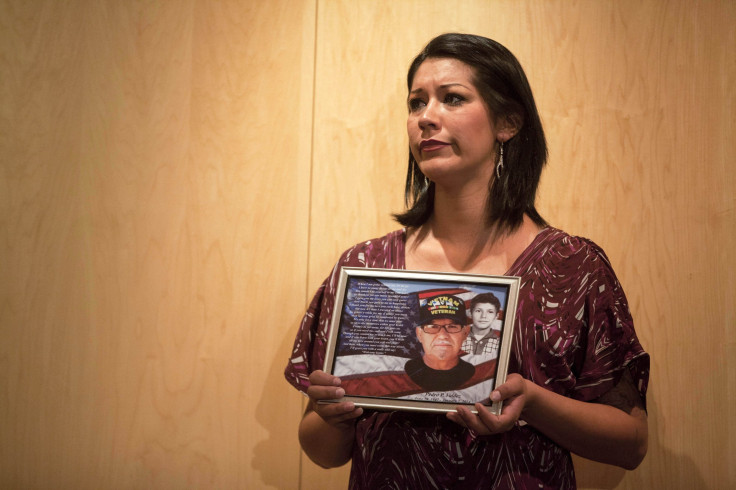Veterans Affairs Report Claims Lengthy Wait Times Did Not Cause Patient Deaths

After months of falsified reports, government cover-up, and delayed health care treatment, the Department of Veterans Affairs released a report Monday claiming the dozens of fatalities sustained between November of last year and April of this year weren’t caused by patient wait times.
Veterans returning from deployment often carry the psychological baggage of post-traumatic stress disorder, substance abuse problems, and physical injury. Unfortunately, as of late, the care they need has arrived after months and months of suffering — if it shows up at all. What began as an institution to help disabled veterans rehabilitate their own lives has become, to many critics, little more than a façade of genuine care, a VA concerned more with financial bonuses than human health.
Added to the 40 deaths that occurred inside the Phoenix VA Health Care system are nearly 2,000 patients still waiting on appointments. Some have been waiting over a year to receive their care, in large part because the files that were supposed to document each patient’s requested appointment got destroyed. Meanwhile, according to Dr. Sam Foote, the recently retired Phoenix VA executive, an “official” list shared with Washington showed the operation running smoothly.
"That hard copy, if you will, that has the patient demographic information is then taken and placed onto a secret electronic waiting list, and then the data that is on that paper is shredded,” Foote told CNN in April.
The latest report claims none of these 40 deaths directly resulted from lack of care. In an interview with The Associated Press, Deputy VA Secretary Sloan Gibson said that while veterans were, in fact, waiting too long to receive care, the department’s investigation found no evidence to support such a causal link. The Office of the Inspector General (OIG) has yet to release its final report on the matter, only a memorandum on the subject written by VA Secretary Robert A. McDonald.
"It is important to note,” McDonald explained, “that while OIG's case reviews in the report document substantial delays in care, and quality-of-care concerns, OIG was unable to conclusively assert that the absence of timely quality care caused the death of these veterans."
In the report, McDonald goes on to reaffirm the VA apologizes to the veterans and their families and says the agency will continue efforts “to improve access to the care and benefits veterans earned an[d] deserve,” though he avoids speculating as to the actual causes of death.
President Obama and Congress have acknowledged the problem’s severity, and both have taken steps to ameliorate the issue in the absence of VA action. In May, on the heels of a meeting with then-Secretary Eric Shinseki and Deputy Chief of Staff Rob Nabors, Obama announced his plans to punish all those involved with the scandal. He called the allegations, if proven true, “dishonorable” and “disgraceful.”
Congress, for its part, allocated $16 billion in July — $10 billion for emergency spending needs over the next three years to private doctors who want to offer alternative care, $5 billion for hiring more VA doctors, nurses and other medical staff, and $1.3 billion to open 27 new VA clinics across the country.
In his telling interview with the AP, Deputy Secretary Gibson emphasized the importance of an apology, though he claimed the department was also taking “bold and decisive action” to fix the problems at hand. What that bold and decisive action looks like is decidedly less clear.
“We owe veterans, we owe the American people, an apology,” he said. “We've delivered that apology. We'll keep delivering that apology for our failure to meet their expectations for timely and effective health care."



























